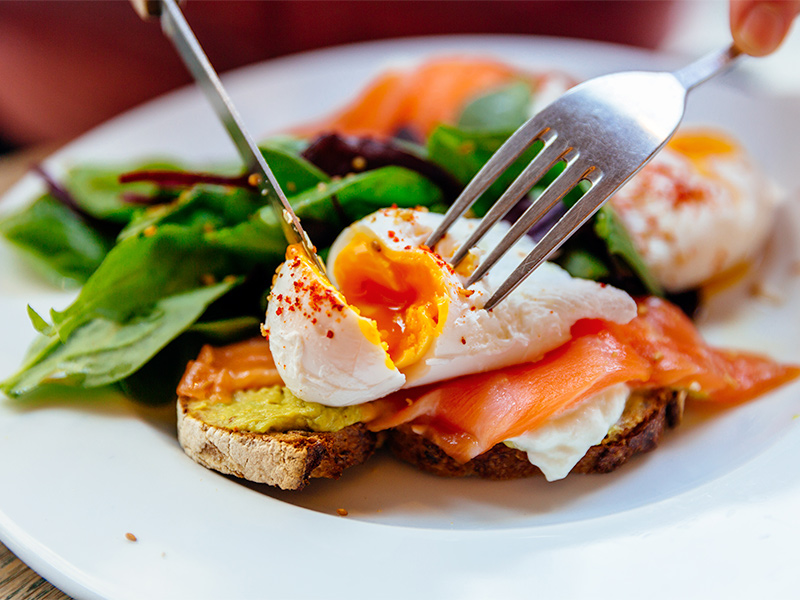How protein hunger can drive overeating
Can’t stop snacking between meals? You may have protein hunger and experts say this simple dietary tweak could put an end to the mid-afternoon munchies.
You grab a couple of slices of toast for breakfast, become ravenous by lunch, and come 3pm you’re reaching for a chocolate bar.
But it may not be your willpower to blame.
New research suggests you’re probably suffering from protein hunger.
And the findings show loading up on protein in the morning can help curb cravings for the rest of the day.
What the research on protein hunger reveals
Researchers from the University of Sydney’s Charles Perkins Centre used Australian Bureau of Statistics data to track the nutrition and physical activity of 9341 Australians.
The analysis found people who didn’t eat much protein at breakfast consumed more throughout the day – particularly energy-dense foods loaded with fats and sugars.
Meanwhile, those eating the recommended amount of protein at breakfast had significantly lower energy intake overall.
Lead author Dr Amanda Grech says the results suggest we keep eating until we satisfy our daily protein target.
“Protein is found in every cell in the body – it’s a fundamental building block for our muscles, bone, skin and hair,” she says.
“Our appetite for protein ensures we consume adequate protein each day.”
Why protein hunger leads to overeating
Nutritional ecologist Professor David Raubenheimer says we’re biologically programmed to experience protein hunger because our body can’t store the macronutrient.
“Our bodies don’t really care too much if we eat too little carbs or fat, because we can draw on stores to get us by, then replenish those later,” Prof Raubenheimer says.
“But if we don’t eat enough protein the only stores available are proteins already serving functional roles in our bodies, such as building muscles, and drawing on those is not a good idea.”
Dr Grech says the problem is further compounded by modern diets, which are increasingly high in refined foods.
“The highly processed foods we eat contain a lot of carbohydrates, sugars and fats but not much protein,” she says.
“Consuming foods that are diluted in protein means we have to continue eating until we meet our daily target.”
Research also shows protein is more filling than carbohydrates and fats, including one study that found those who increased their protein intake to 30 per cent – with 20 per cent fat and 50 per cent carbohydrate – consumed 441 fewer calories a day on average.
“Protein is the nutrient that actually makes us feel satisfied or full and sends messages to our brain to stop eating,” nutritionist, health scientist and naturopath Kristen Beck says.
“If the meal that you eat does not contain at least some protein you are more likely to over consume calories.”
- Animal v plant: Which protein is better for you?
What should we eat to avoid protein hunger?
Dr Grech says starting the day with a good quality, high-protein breakfast is the answer.
“Most people generally need to increase the number of serves of lean protein sources in the diet to meet dietary guidelines,” she says.
“A breakfast that is higher in protein such as eggs, wholegrain oats, natural yoghurt or milk, can reduce energy intake over the day.”
Kristen says avoiding processed, low-protein foods and instead eating vegetables, fruits, lean meats, fish, nuts, seeds, legumes, dairy, whole grains and eggs, will enable us to reach our protein requirements and cut back on snacking.
“Many of these foods also contain lots of dietary fibre, which can also help to curb your hunger,” Kristen says.
“Making sure that most of your meals and snacks contain healthy sources of protein will also stop protein hunger before it even starts.”
- Snack attack: Are protein bars actually healthy?
Written by Dimity Barber.





